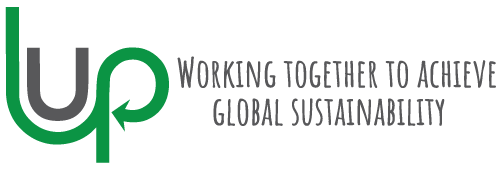October 2018 – Newsletter
Exciting New Changes Happening At LUP !
After almost one year since we launched, LUP is continuing to evolve. We are currently making some significant changes to improve and better fit the needs of our network and clients.
Focus of this newsletter :
– No more active listings on our website
– SBG has merged with LUP global
– LUP Asia-Pacific is now created
– Our guest expert Catherine Weetman analyses circular approaches to reduce inventory headaches
– Our newscorner this feature presents inspirational videos and podcasts
No more active listings
A few months ago, we advised that there were some big changes occurring here at LUP. We are very excited to announce the start of these changes today.
Firstly, we will no longer be maintaining active listings on our website. We are working on a number of updates to our website at the moment to reflect some of the developments in recent months, and this is the first major transition to the way we wish to engage with our network and a more sustainable way of working that paves the way for further changes to come. 
After launching in November last year, we realised that we didn’t want to create a “marketplace” for the sale of waste or spare capacity. We didn’t want to essentially create a platform that would enable the sale of goods easily via a B2B online platform, which may thereby enable the potential to create further wasted materials due to the relative ease of sale and LUP being able to facilitate the end-to-end transaction. We want to ensure all goods that are made available and transacted through our network are actually waste materials, plus engage at much longer term strategic levels with our clients and network to avoid the overproduction of goods to begin with and ensure circular economy frameworks are considered from the outset.
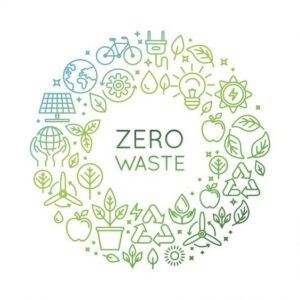
We are also focusing in more on a select few major categories for waste currently and will have more announcements over the coming months to reach out across our network to engage with relevant stakeholders within these categories. For now, please kindly stay tuned for further updates as we continue to evolve, we thank-you for your patience and really appreciate the ongoing support.

Strategic Buyers Group (SBG) Has Now Merged With LUP Global
In 2016, Strategic Buyers Group (SBG) was founded as a boutique consulting agency based in Melbourne, Australia. The focus of SBG was on Supply Chain, Procurement and Logistics Consulting for Social Enterprises (companies that wanted to make a positive impact on the world). Whilst the founding story of how utilising the spare capacity in the trucks at AUZ Country Carriers to connect companies with waste with others (CSF a charity) that could utilise those products for the homeless and disadvantaged, planted the seed for the whole concept around LUP Global, SBG was also a major stepping stone in the formation and evolutionary story of the Social Entrepreneurs Network (now LUP Global).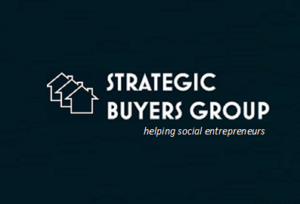
So it is with much delight that we announce the official merger of SBG to LUP Global effective 1st July 2018.
Some of the major projects SBG had previously engaged in were:
– Setting up Greenfield Procurement sites within the Aged Care Industry based in Melbourne, Australia
– Major National Logistics, International Freight and Supply Chain Projects for the Biotechnology/Food Industry
– Strategy and Risk Management Consulting, including Insurance reviews for Education Providers, Manufacturers/Wholesalers and Charities
– Inventory Management, Procure-to-Pay Implementations for FMCG clients.
With the extensive Supply Chain experience, knowledge and established clientele of SBG, we are confident that the merger of SBG with LUP will enable us to add greater value to our network and holds us in great stead for the future.

The Official Formation of LUP APAC
September 2018 also marked a very important milestone for LUP Global. It was the official company formation of our first global regional division LUP Asia-Pacific (LUP APAC). We are so excited to have formed a dedicated division now to the Asia-Pacific region and where LUP Global was originally established. We are in the process of setting up our Asia-Pacific team and will be making further announcements in the coming months.
Catherine Weetman Guest Expert Part 4 :
Using circular approaches to reduce your inventory headaches
Many businesses aim to grow through increased transactions: more customers, new product development and shorter product lifecycles. We often depend on complex, long-distance, multi-tier supply chains, with long lead times and substantial safety stocks to offset uncertainty and disruptions.
These growth models can have hidden costs and risks. Those shorter lifecycles lead to regular product ‘churn’, with discounting or disposal of unsold and obsolete stock. We might have stock of components and raw materials that we’d already committed to. Resistance to ‘taking the financial hit’ can mean they remain in stock for another season (and another!), using up warehouse space and capital. 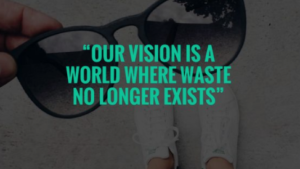
Brands may prefer to destroy stock rather than risk it appearing on the ‘grey market’, but that can damage reputation – you may have seen the shocked reaction to British fashion brand Burberry burning £28m of stock. Warranty or legal obligations could mean stocking spare parts for the obsolete product, too.
Circular models aim for durability, perhaps with a modular product design, enabling upgrade and repair through a simple component ‘swap-out’. Your customer can access the latest, efficient technology, saving the cost of a new product and avoiding disposal of the old one. This builds brand loyalty and reduces the risk of losing your customer when your competitors announce a new product! Offering spare parts and service offers could create new revenue streams.

Circular design strategies can simplify the Bill of Materials. Modular designs, with a narrower, less complex range of components, fixings and materials, enable a common pool of Stock Keeping Units (SKU) across your products. Spreading sales volume across fewer unique SKUs means greater demand for each SKU, helping reduce safety- and cycle-stock.
We can also rethink material specifications to reduce risk and cost volatility. By swapping finite for recycled materials, local sources could replace overseas suppliers. Shorter lead times mean less safety stock, and potentially reduced supplier Minimum Order Quantities. Are some of your materials at risk from geographic disruption, from trade wars, geopolitics or natural/weather disasters?
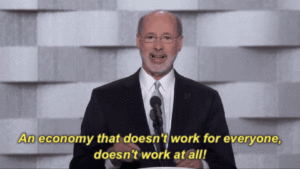 Maybe you could swap that ‘under pressure’ resource to a recycled or renewable, abundant material, with less need for safety stock to offset the risk. Emphasising local supplier relationships can help you build an agile, resilient supply chain!
Maybe you could swap that ‘under pressure’ resource to a recycled or renewable, abundant material, with less need for safety stock to offset the risk. Emphasising local supplier relationships can help you build an agile, resilient supply chain!
Newscorner
This month on Newscorner, we wanted to provide links on some great podcasts or programmes currently available online or in your local area around circular economies for further viewing or information.
Plastics – Costing the Earth episode on BBC R4, available as podcast / listen again here, which covered the complexity of packaging choices and what we should be aiming towards.
Drowning in Plastic – Documentary 90mins on BBC TV – Available in the UK until 2nd November.
The Secret Life of Landfill – Documentary 90 mins on BBC4 TV with an archaeologist and a materials scientist. Available in the UK until 31st October.
Closing the loop film, available to request public screenings, or see link to watch on Vimeo.
Plus a great example of the use of low carbon jetfuel by Virgin Atlantic who partnered with LanzaTech to utilise industrial waste gases and other plentiful waste streams into sustainable jet fuel.
And…
